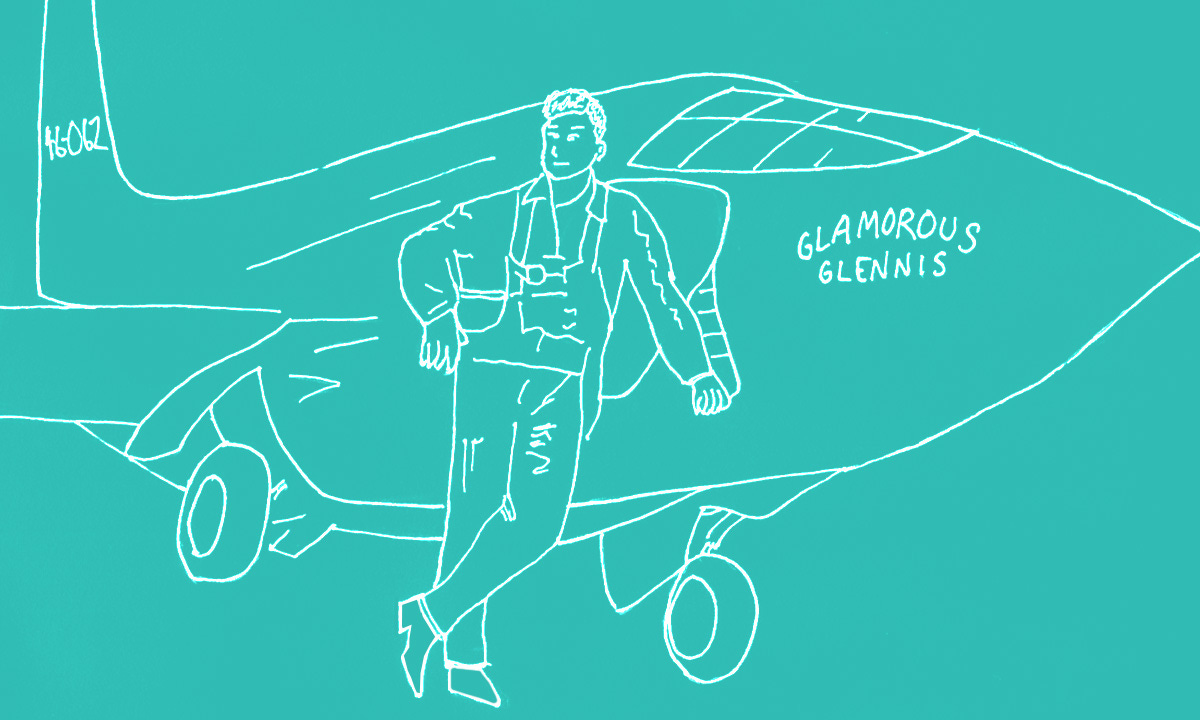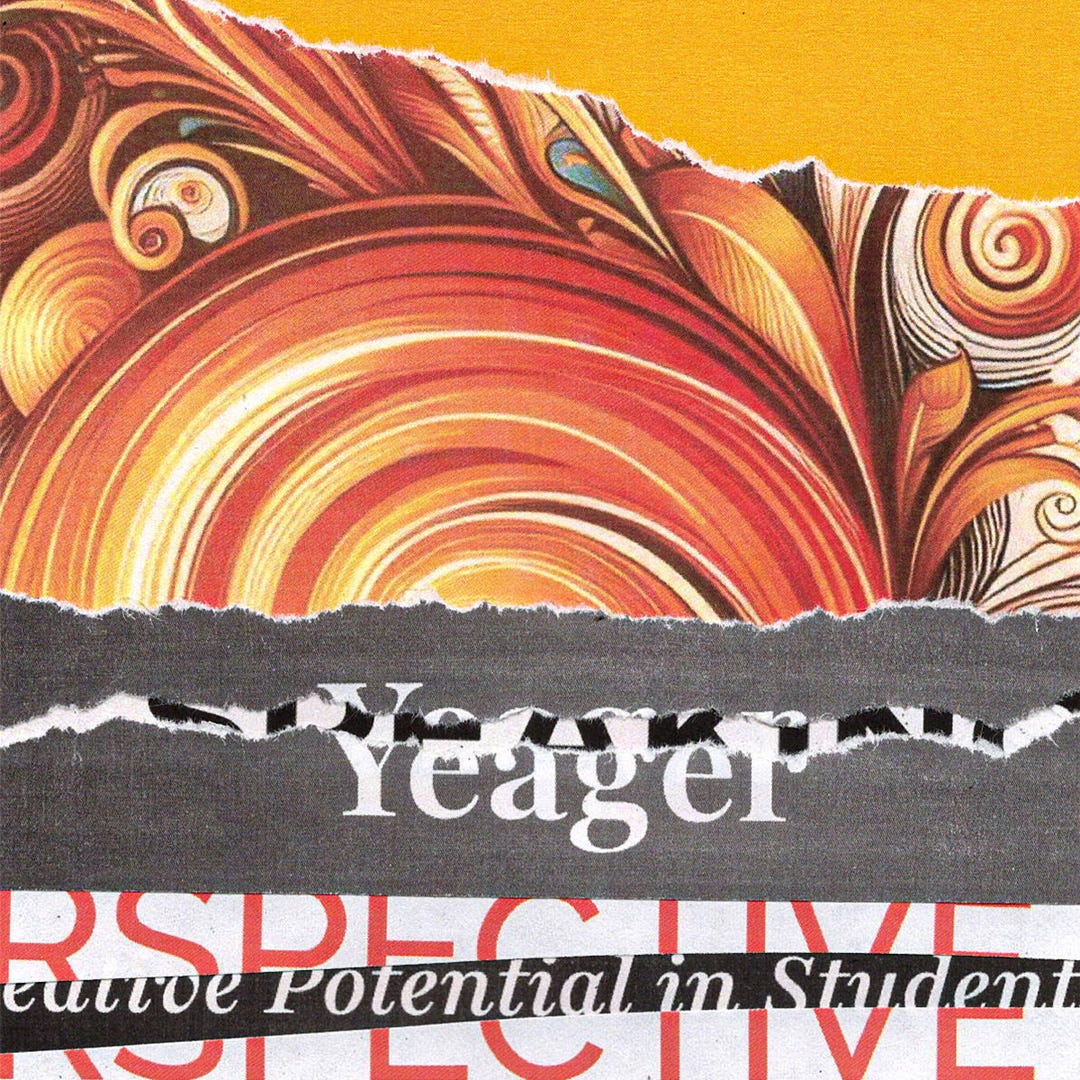Public Speaking, Creativity in Teaching, & Mastering Skills
From public speaking to fostering creativity in students, explore insights on engagement, skill mastery, and the value of diverse interests in learning.
Hey Friends! I’ve got a mixed bag of creative insights and innovative practices for you. Let’s get into it.
Public Speaking
A 1977 survey cited in The Book of Lists suggests that people fear public speaking even more so than dying—which means at a funeral, more people would rather be in the casket than delivering the eulogy.
Somehow I defied the odds. I actually enjoy speaking in front of others (perhaps why I became a teacher). I still get nervous from time to time, and even, on occasion, lose sleep the night before a speaking engagement, but the sense of accomplishment when all is said and done feels great.
In a future chapter of my life, I’d like to do more public speaking, and in that spirit, I signed up to lead professional development at my school’s March institute day. The session will be called Enhancing Creativity to Foster Engagement and Belonging in the Classroom.
The session will focus on strategies that activate students' creative background processes—those subtle, often subconscious mechanisms that fuel innovative thinking, problem-solving, and deep engagement. Participants will take part in brainstorming exercises and creative thinking activities that they can integrate into their instruction.
Over the next few weeks, I am going to use this space to explore ideas and concepts that I intend to include in my session. If you have any feedback on anything I say here, your comments will help shape my session.
Takeaway: When I started this newsletter last September, it wasn’t with public speaking in mind, but when you open yourself to opportunities, they start to present themselves to you.
Yeager Bomb
In this chapter of my life, I don’t have the bandwidth to pursue public speaking in a professional capacity, but I’m reminded of a quote from the autobiography of General Chuck Yeager:
You do what you can for as long as you can, and when you finally can't, you do the next best thing. You back up, but you don't give up.

For me, right now, writing this newsletter is the next best thing to public speaking. My teaching load and familial responsibilities would make it nearly impossible to keep up with the travel required, and abandoning the security that my job provides my family and me would be recklessly irresponsible.
In 16 years though, I’ll retire from my daily instructional duties, and I have a sneaking suspicion that I’ll grow tired of golf fast. Here I can explore ideas, connect with other likeminded individuals, and share my learnings as I build authority and credibility for the next chapter of my professional career.
Takeaway: Never underestimate the wisdom of a West Virginia farm boy—especially one who broke the sound barrier.
Jack of All Trades, Master of Perspective
Sometimes, someone perfectly captures a feeling you've had but couldn't put into words. That’s exactly what happened when I saw the comic strip below by Skeleton Claw on blue sky.
Pardon the language in frame three, but this comic was too good not to share:
For nearly as long as I can remember, I've wished I’d poured myself into one single pursuit or interest. I’d love to have spent the time to become a master guitarist, sketch artist, computer programmer, singer, lacrosse player, or standup comedian. Instead, I dabbled.
I’m a dabbler.
I dabble here. I dabble there, but I rarely stay long enough in any one activity to become exceptionally skilled. Instead, I’ve collected a wide range of skills that I’m fairly competent in, but, again, I’m no expert.
That used to bother me, but over time, I’ve come to value my Swiss Army pocketknife approach to hobbies. Like the comic suggests, my approach offers me a unique perspective that I believe has become my competitive advantage in life.
Takeaway: Engaging in varied interests over time promotes a cross-pollination of ideas that lead to divergent thinking—a key ingredient of creativity.
Creative Potential in Students
tagged me on the message below, originally from . It reads:What do you think are the core ingredients for unlocking creative potential in students?
I thought it was an interesting question, and gave it more thought than anyone probably asked for, and in that spirit decided to republish it here. Enjoy!
The US school system’s calendar is rooted in an agrarian economy, while its bell schedule and instructional practices reflect the needs of an industrial workforce. Meanwhile, most parents (at least in my community) have aspirations for their children to become productive members of the information age. As such, creativity often takes a back seat to a system that was designed to value farming, line work, and accounting.
By the time students get to me in high school, much of their creative inclinations have been beaten out of them. They’re great at showing up on time, parsing through rubrics, checking boxes, and earning objectively measured grades.
They’re not so great at completing open ended tasks.
In my entrepreneurship class, when students ask me how many slides their pitch deck should have, they tend to frown when I respond, “As many slides as it takes to convey your message.”They’re usually hoping for a finite number, like 6.
In my digital graphic, web, and game design classes, I’ve found that students similarly want specific criteria to “check off” to earn the best grade possible. They’re less interested in exploring the varying facets of a discipline for intrinsic purposes.
That being said, I view it as my job to help students become reacquainted with their creative potential. Here’s what I’ve found has worked:
Model what is possible and let students emulate that work.
Let students modify what they’ve emulated until it becomes distinctly theirs.
Give Students time to make mistakes, offer feedback, and allow for corrections.
Instill in students that failure isn’t the opposite of success, but rather a necessary step along the way.
Structure grading to reward effort and risk taking
Be comfortable knowing that finished products, might not me worthy of a magnet on the refrigerator door
Celebrate the behavior you’d like to see in your students
Of course, it is easier to write this list than it is to implement these practices in my instruction, but it is becoming my belief that we are headed towards a future that will be defined as the creative economy. With AI prone to disrupt seemingly everything, matters of taste and creative expression may take the mantle of greatest importance.
Takeaway: Teachers are on the frontline of preparing our future workforce for unprecedented change. At the very least, it’s worthy to consider what humans will be able to do that computers won’t.
Which Pen is Mightier?
A simple question about pens turned into one of my most viral posts ever. The original reads:
What’s your go to pen these days?
I’m looking for something affordable, with good ink flow, and better than a standard bic.
If any group online will have an opinion about this, it’s here.
See the original below:
Just taking a cursory glance, it was clear that given my criteria, the Pilot G2 was the clear winner, but I was curious if there were any others themes or trends hidden in the unstructured data. So, I fed all of the responses into ChatGPT and asked it to parse through the replies and summarize its findings. Here’s what it had to say:
Summary of Responses:
Most Recommended Pens:
Pilot G2 – The clear favorite, praised for its smooth gel ink, affordability, and wide availability.Uni-Ball Signo 207 – A strong contender, with a decade-long fan base for its smooth writing experience.Zebra F-701 – A popular upgrade from basic pens, with a stainless steel body and quality feel.Muji Gel Pens (0.38mm & 0.5mm) – Loved for their smoothness, precision, and affordability.Pentel EnerGel (0.5mm & 0.7mm) – Well-received for its ink flow and reliability.Sharpie Gel Pens – Some users found them even better than the Pilot G2.Pilot Juice Up – A lesser-known but well-loved gel pen, especially for finer tips.
Specialty Pens:
Fountain Pens (Pilot Kakuno, Kaweco, Platinum #3776, Pilot Metropolitan) – Fans appreciate their durability, refillability, and comfort for long writing sessions.Lamy Rollerball & Pigma Micron – A niche choice for those preferring archival ink or a different feel.TUL GL Series – A rising favorite for gel pen lovers.Bic Gel-ocity & Zebra G-750 – A step up from standard Bics but not as widely praised as others.
Key Takeaways:
Compounding Preferences: The Pilot G2 stands out as the most recommended due to its balance of affordability, smooth ink flow, and comfort. However, many users have refined their preferences over time, moving toward higher-end gel pens, rollerballs, or fountain pens as they become more discerning.Ink Flow & Longevity Matter: Several users mentioned that some pens (Zebra F-701, G-750) run out quickly, making refill availability and longevity an important factor.Ergonomics & Writing Comfort: Users who write frequently tend to prioritize grip, weight, and ink flow over price.
Final Verdict:
If you're looking for an affordable yet superior option, the Pilot G2 is the best starting point. If you want an upgrade, Uni-Ball Signo, Zebra F-701, or Sharpie Gel Pens are strong contenders. For those willing to experiment, Muji, Pentel EnerGel, or TUL GL pens offer niche advantages.
Takeaway: In the age of AI, it’s worth considering how tools like ChatGPT can filter noise into meaningful insights.
One More Thing
Good things are better when shared. If you liked this, it would mean the world to me if you sent it to someone who might like it too.
I’ll see you in your inbox again next week.
Until then,
-Mike





Thanks for the mention!
"Engaging in varied interests over time promotes a cross-pollination of ideas that lead to divergent thinking—a key ingredient of creativity." This has also been my experience as a enthusiastic generalist in a hyper-specialised world (and high school teacher with creative courses).
I liked your list. I might also add 'applying strategic constraints'. I find that if you block the most-common approach to addressing an assignment then you can force creativity.
For example, if the task is to write a paragraph about creativity, but students must begin by writing the last sentence, working backwards until they conclude with the opening sentence, you may get very different outputs. These kinds of constraints can be used to create obstacles which force students to 'take the road less travelled'.
1. I loved your response about fostering creativity. Hooray for putting in more thought than required!
2. At first, I thought: “wow, what a great use for AI!” And I think for something like pens, it is. But I wonder if in a different context, outsourcing that synthesization might allow the ability to even do so to atrophy. I don’t think people—especially students—will have the discipline to discern the difference between when they should and shouldn’t do it themselves.
But then again, I’m struggling to come up with a specific example, so maybe synthesizing large groups of information is best left to the robots and I’m just a nervous naysayer.